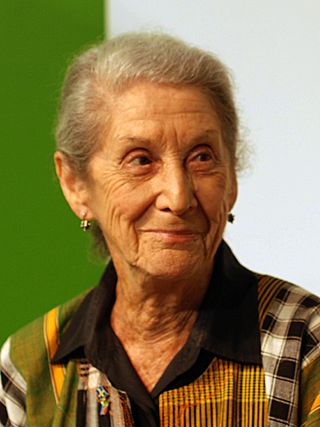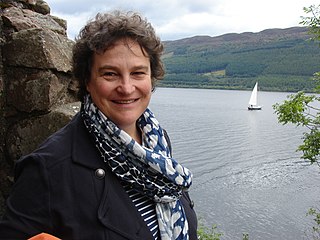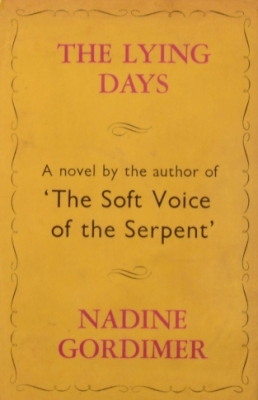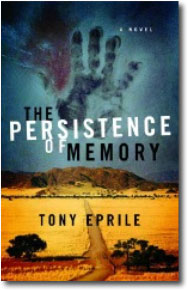The slave narrative is a type of literary genre involving the (written) autobiographical accounts of enslaved persons, particularly Africans enslaved in the Americas, though many other examples exist. Over six thousand such narratives are estimated to exist; about 150 narratives were published as separate books or pamphlets. In the United States during the Great Depression (1930s), more than 2,300 additional oral histories on life during slavery were collected by writers sponsored and published by the Works Progress Administration, a New Deal program. Most of the 26 audio-recorded interviews are held by the Library of Congress.

The Truth and Reconciliation Commission (TRC) was a court-like restorative justice body assembled in South Africa in 1996 after the end of apartheid. Authorised by Nelson Mandela and chaired by Desmond Tutu, the commission invited witnesses who were identified as victims of gross human rights violations to give statements about their experiences, and selected some for public hearings. Perpetrators of violence could also give testimony and request amnesty from both civil and criminal prosecution.

Nadine Gordimer was a South African writer and political activist. She received the Nobel Prize in Literature in 1991, recognised as a writer "who through her magnificent epic writing has ... been of very great benefit to humanity".

The Afrikaner Weerstandsbeweging, commonly known by its abbreviation AWB, is an Afrikaner nationalist, white supremacist, and neo-Nazi political party in South Africa. Since its founding in 1973 by Eugène Terre'Blanche and six other far-right Afrikaners, it has been dedicated to secessionist Afrikaner nationalism and the creation of an independent Boer-Afrikaner republic or "Volkstaat/Boerestaat" in part of South Africa. During bilateral negotiations to end apartheid in the early 1990s, the organisation terrorised and killed black South Africans.

The Plot Against America is a novel by Philip Roth published in 2004. It is an alternative history in which Franklin D. Roosevelt is defeated in the presidential election of 1940 by Charles Lindbergh. The novel follows the fortunes of the Roth family during the Lindbergh presidency, as antisemitism becomes more acceptable in American life and Jewish-American families like the Roths are persecuted on various levels. The narrator and central character in the novel is the young Philip, and the novel follows his coming of age, as well as American politics.

Beloved is a 1987 novel by American novelist Toni Morrison. Set in the period after the American Civil War, the novel tells the story of a dysfunctional family of formerly enslaved people whose Cincinnati home is haunted by a malevolent spirit. The narrative of Beloved derives from the life of Margaret Garner, a slave in the slave state of Kentucky who escaped and fled to the free state of Ohio in 1856.

Country of My Skull is a 1998 nonfiction book by Antjie Krog about the South African Truth and Reconciliation Commission (TRC). It is based on Krog's experience as a radio reporter, covering the Commission from 1996 to 1998 for the South African Broadcasting Corporation. The book explores the successes and failures of the Commission, the effects of the proceedings on her personally, and the possibility of genuine reconciliation in post-Apartheid South Africa.

Marlene van Niekerk is a South African poet, writer, and academic. She is best known for her novels, the satirical tragicomedy Triomf (1994) and the Hertzog-winning Agaat (2004), which explore themes including the family, the change in power dynamics occasioned by the end of Apartheid, and inequalities of race, gender, and class. Van Niekerk is also an award-winning poet. She writes in her native tongue, Afrikaans, and teaches at Stellenbosch University.

A truth commission, also known as a truth and reconciliation commission or truth and justice commission, is an official body tasked with discovering and revealing past wrongdoing by a government, in the hope of resolving conflict left over from the past. Truth commissions are, under various names, occasionally set up by states emerging from periods of internal unrest, civil war, or dictatorship marked by human rights abuses. In both their truth-seeking and reconciling functions, truth commissions have political implications: they "constantly make choices when they define such basic objectives as truth, reconciliation, justice, memory, reparation, and recognition, and decide how these objectives should be met and whose needs should be served".
Tony Eprile is a South African and American writer. His 2004 novel, The Persistence of Memory, won the Koret Jewish Book Award in 2005.
Racial passing occurs when a person who is classified as a member of a racial group is accepted or perceived ("passes") as a member of another racial group. Historically, the term has been used primarily in the United States to describe a black or brown person or of multiracial ancestry who assimilated into the white majority to escape the legal and social conventions of racial segregation and discrimination. In the Antebellum South, passing as white was a temporary disguise used as a means of escaping slavery. Other instances include cases of Jews in Nazi Germany attempting to pass as "Aryan" and non-Jewish to escape persecution.

Red Dust is a 2004 British drama film starring Hilary Swank and Chiwetel Ejiofor and directed by Tom Hooper.

Ronald Suresh Roberts is a British West Indian biographer, lawyer and writer. He is best known for his biographies of some of the leading figures in the "New South Africa" such as Nobel Prize winner Nadine Gordimer and former South African President Thabo Mbeki. Roberts has been described by Nelson Mandela as "a remarkable and dynamic young man". He currently lives in London, England.

Fear: Anti-Semitism in Poland after Auschwitz: An Essay in Historical Interpretation, is a book by Jan T. Gross, published by Random House and Princeton University Press in 2006. An edited Polish version was published in 2008 by Znak Publishers in Kraków as Strach: antysemityzm w Polsce tuż po wojnie: historia moralnej zapaści. In the book, Gross explores the issues concerning incidents of post-war anti-Jewish violence in Poland, with particular focus on the 1946 Kielce pogrom. Fear has received international attention and reviews in major newspapers; receiving both praise and criticism.

Ah, But Your Land Is Beautiful (1981) is the third and final novel by South African author Alan Paton. Ah, But Your Land is Beautiful is set in the 1950s, after apartheid was established in postwar South Africa. The historical novel explores fictional characters interacting with historical figures working to resist these laws.
Ashley Kriel was a South African anti-apartheid activist who was killed by police in Cape Town on 9 July 1987 for his role in the anti-apartheid movement. In 1999, the Truth and Reconciliation Commission granted Jeffrey Benzien amnesty for his part in the killing.

The Lying Days is the debut novel of Nobel winning South African novelist, Nadine Gordimer. It was published in 1953 in London by Victor Gollancz and New York by Simon & Schuster. It is Gordimer's third published book, following two collections of short stories, Face to Face (1949), and The Soft Voice of the Serpent (1952). The novel is semi-autobiographical, with the main character coming from a small mining town in Africa similar to Gordimer's own childhood in Springs. The novel is also a bildungsroman "about waking up from the naivete of a small colonial town."

Craig Higginson is a novelist, playwright and theatre director based in Johannesburg, South Africa. He has written and published several international plays and novels and won and been nominated for numerous awards in South Africa and Britain.

Reconciliation theology or the theology of reconciliation raises crucial theological questions about how reconciliation can be brought into regions of political conflict. The term differs from the conventional theological understanding of reconciliation, but likewise emphasises themes of justice, truth, forgiveness and repentance.
William Paul Coates is an American publisher, printer and community activist. In 1978 he founded the Black Classic Press (BCP), an imprint devoted to publishing obscure and significant works by and about individuals of African descent, particularly previously out-of-print books, and he also established the printing company BCP Digital Printing in 1995. He is the father of award-winning author and journalist Ta-Nehisi Coates.















